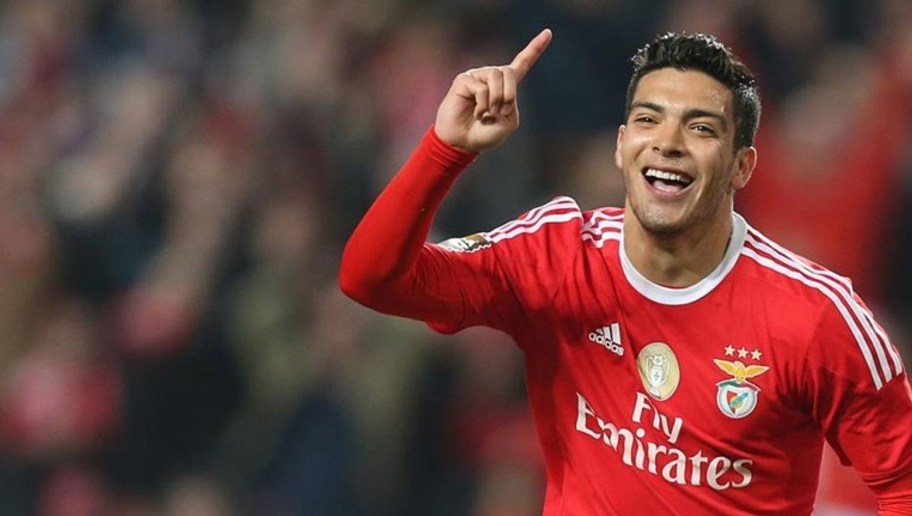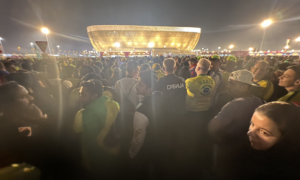The near conclusion of Apertura 2017 has brought the end of some of the most exciting and brave futbol in the world. In Liga MX, this means the semifinal and final rounds of its Liguilla. For Ascenso MX, it’s the final round. In the lower divisions, Serie A, Serie B, and La Tercera, teams are deep in those competitions’ playoff rounds.
But that does not stop the pace of administrative decisions, the challenges to authority, endemic corruption, and the coaching and player carousel in the mid-season, inter-tournament break.
Why you should care about the Ascenso MX playoffs and watch the final.
The Ascenso MX playoffs have, at times, been more interesting than the Liga MX playoffs. Unlike the Liga MX race, there are different implications for different teams. Only six teams are right now eligible for promotion. And of those six, only two–Celaya and FC Juarez–qualified for the Liguilla. While both qualified for the semifinals, only FC Juarez made it to the semifinal. An away goal by Oaxaca’s Luis Madrigal doomed the Apertura Superliders to the exit.
Given that one team is promotion eligible in the final and one isn’t, the Apertura 2017 final means different things regarding the relegation race in Liga MX. If FC Juarez win the two-legged final, the chance that the last place team in the relegation battle in Liga MX, currently Veracruz, is actually relegated jumps from 37.5% to 50% regardless of which team wins the Clausura.
An FC Juarez win sets up the possibility of a straight promotion for the Bravos should they string together a second successive title.
If Alebrijes pull off what might be considered an upset on paper, there will suddenly be a lack of urgency in Mexico’s top division. The chance of a team being relegated remains only 37.5% in general. Should none of the six promotion-eligible teams qualify for the playoffs (or win the final), the last place team in Liga MX’s safety will hinge on paying a $7M compensation to the winner of the “promotion final”.
The 20/11 rule may return to Liga MX, but it isn’t the most effective fix for its “domestic player problem.”
Today, ESPN learned that the Sports Development Committee, which consisted of team owners from Chivas, Monterrey, Club America, Pachuca, Santos Laguna, Morelia, Tijuana, and Pumas, was going to re-implement the so-called “20/11 rule” in Mexican futbol, which requires the teams play players under 20 years, 11 months of age more than 1000 minutes per each team per tournament.
The rule allowed for players like Chicharito and Andres Guardado to get good minutes in Liga MX before moving abroad. And theoretically, it seems like a good idea and it is not a strict foreign player rule, which allows the teams to play young players who aren’t Mexican nationals who play their youth football in Mexico.
But the problem is the rule, which was implemented by a committee with Liga MX owners with a decided interest in how the money moves from players, might not be the most sure way to guarantee young players get minutes and that those players are actually good enough to rise to the ‘world standard’.
A more reliable and robust solution to the money issue starts with a better foundation of solidarity and training compensation actually being paid to the entities responsible for training the player(s) in question during their younger years which may not necessarily field a team in Mexico’s professional leagues.
A former Potros UAEM player revealed a “pay to play” scheme at his club.
In an interview with TV Azteca that was transcribed by Record, former Potros UAEM player Francisco Pizarro revealed that, as part of his poor treatment at UAEM, he had to pay 50% of his salary to sporting director Moises Britos and manager Omar Ramirez per season to be able to play.
The 28-year-old Chilean also revealed poor treatment by not only Britos but also manager Omar Ramirez. When he made the complaints to Ramirez and the Potros’ directors, he explained that the club seemed indifferent to his concerns.
According to Record, he filed a complaint against the State of Mexico club to the FMF Players’ Committee, who investigated the matter. It was in the Players’ Committee’s investigation that the nature confrontation between Pizarro and the UAEM managerial staff (notably Britos and Ramirez) was revealed.
Ultimately, Omar Ramirez did receive the sack before the last match of the Apertura 2017 season, where the Potros finished second from bottom. Moises Britos, the sporting director who carried out the extortion, received a lifetime ban from FMF-affiliated footballing activity.
The willingness of Pizarro, who had only joined the team in 2017, to speak could start a conversation on life in the lower divisions and the actions by both the Players’ Committee and the FMF in general both seemed to spark hope that many would start to understand and alleviate the various corruption-related issues in Mexican football, especially on player rights.
But this story is still an early investigation, and there are a lot of details that are unknown from this investigation by Record. We do not know if other players at UAEM have come forward with extortion complaints about their management, or the extent to “pay to play” practices that are done elsewhere in Mexican club football beyond the grounds of the Toluca-based team.
However, a complaint filed last week by the Association of Mexican Footballers over Atlante failing to pay its players’ wages for at least a month seem to indicate that the problems of wage theft are more common than FMF or its clubs may want to admit.
Televisa has been a mediator of futbol corruption in Mexico. The FIFA corruption trial in New York is providing proof of it.
At Fut Mex Nation, we often bring highlights to you from Televisa’s networks and tell you about where you can watch games on networks operated by Televisa’s American partners–Univision. (The Univision people do great work.)
But in Mexico, the network and its family of networks have been criticized for everything from being “too cheap” in its show budgets, to producing overly formulaic shows (in the mold that many Americans criticized CBS), and competition from online services such as Netflix. The issues so far forced a resignation by then-CEO Emilio Azcarraga Jean in October. (Story by Reuters.)
Yet somehow, Televisa beat out more lucrative bids by other companies, including a bid by Grupo Pachuca and NBC Sports that would have seen Mexico games shown worldwide on its network, and paid the FMF more money. These were revenues that could have expanded the appeal of El Tri and access to its games beyond the Americas (North and South) and provided a “world feed” equivalent to what fans often see when watching games from La Liga, Ligue 1, Serie A, Premier League, UEFA Champions League, or the Copa Libertadores.
And during the FIFA trials, evidence of the network’s involvement in Alejandro Burazco testified that Televisa, along with O Globo and Torneos, worked to funnel $15 million to Julio Grondona in a bribe to secure World Cup TV rights in Brazil and the rest of Latin America for the 2026 and 2030 editions of the World Cup back in 2013. (Other networks, including Fox Sports, Traffic, and Full Play, were involved in the bribing process, but they would not be discussed here.)
BIG FIFA NEWS from trial today: Alejandro Burzaco said Fox Sports, Televisa, Media Pro, TV Globo, Full Play, and Traffic all paid bribes for soccer rights.
— Ken Bensinger (@kenbensinger) November 14, 2017
Televisa, O Globo, and Torneos agreed in March 2013 to pay $15 million bribe to Julio Grondona to secure TV rights to 2026 and 2030 World Cups in Brazil and rest of Latin America, Burzaco said in FIFA trial today.
— Ken Bensinger (@kenbensinger) November 15, 2017
Televisa, accused by Burzaco of participating in bribes and agreeing to pay Julio Grondona part of a $15 million bribe for World Cup rights, was the subject of this article by @tariqpanja recently regarding possible corruption: https://t.co/f6YzI2mrDv
— Ken Bensinger (@kenbensinger) November 15, 2017
A law firm says Televisa is investigating Burzaco's claims in FIFA trial that the company paid bribes. https://t.co/26yWNke7R9
— Ken Bensinger (@kenbensinger) November 15, 2017
Ex-Televisa executive Adolfo Lagos was assasinated this weekend. Some speculate it has to do with accusations in federal court last week that Televisa was involved in bribes for soccer rights. https://t.co/3RU1voqz7z
— Ken Bensinger (@kenbensinger) November 20, 2017
Televisa had also been part of a scheme to help a tiny, three-person Switzerland-based management company, secure World Cup TV rights according to an investigation by New York Times.
But the biggest indication of Televisa’s potential reaction came when reports surfaced that Adolfo Lagos Espinosa was assassinated on the Tulancingo-Piramides Highway near Teotihuacan, a town of 46,000 people situated approximately 45 km northeast of Mexico City. Lagos Espinosa was once the corporate vice president of Televisa, who carried his expertise in operations management and technology to his work with the Mexican TV giants, according to a report in El Universal. According to Ken Bensinger of Buzzfeed, Lagos Espinosa’s assassination was speculated to have something to do with the revelations Lagos had made in court over Televisa’s role in the corruption.
Televisa have also been owners of Club America since 1959, when it was acquired by Emilio Azcarraga Milimo for Telesistema Mexico, Televisa’s predecessor.
The fragility of the Legionarios‘ futures abroad was made clear this week.
This weekend has been a weekend of both good news and bad news. There are the consistent performances by Guillermo Ochoa with Standard Liege, and the free kick golazo by Andres Guardado by Real Betis. But we often forget to put their performances in context to what their teams needed, and what the local fans and directors, the ones who are closest to the teams and their history, actually expect.
At Benfica, according to a report by A Bola, the club’s win-less and point-less UEFA Champions League group stage performance and third place position in the league has prompted manager Rui Vitoria to ask his directors to bring in nine players, and offload many others. Among the players that Rui Vitoria is considering offloading is Raul Jimenez, who is still the most expensive signing ever by a Portuguese team once Benfica completed payments to Atletico Madrid for Jimenez’s economic rights. In 17 appearances in 2017-18 across all competitions, Raul Jimenez has only scored twice.
But in moments of struggle, when seemingly established first-team players like Raul Jimenez fail to help their team get the required results, they present opportunities for other, potentially younger players to step up in a pressure situation. And that opportunity was presented courtesy of Paolo Medina starting to train with Benfica’s first team. The 18-year-old Veracruz native had joined Benfica from Real Madrid’s youth teams, and had played with the Eagles’ under-19 team so far in 2017-18.
Mexico and former Real Madrid youth player Paolo Medina training with Benfica’s 1st team. He’s trained multiple times throughout the season with the 1st team. Break through coming soon ? pic.twitter.com/ITKoOGMSsE
— ??’s Next Gen. (@MexNexGen) November 27, 2017
And in Cyprus, at APOEL Nicosia, Raul Gudino thought he would be able to move in to start for the 2016-17 First League champions when longtime starter Boy Waterman was injured in a group stage game in October. Instead, Thyrlos have knocked the Porto loanee down the pecking order, electing to use 32-year-old Spanish trialist Nauzet Perez for five matches before opting to hand a debut to 19-year-old Antreas Paraskevas in a win over relegation-threatened Olympiakos Nicosia. APOEL currently sit fifth in the First League table, nine points behind leaders AEK Lanarca.
And in England, Chicharito spoke to West Ham United TV about a potential return to the lineup from a hamstring injury for next week’s game. However, he knows his history with now-West Ham manager David Moyes has not been good, particularly when the two were at Manchester United. But Chicharito’s joker card, should his hamstring injury allow him to return to the West Ham lineup, will be that the Hammers’ continue to sit in the Premier Leagues’s relegation zone.
For the Mexicans who play abroad, the pressure for results means a heightened intensity into improving every aspect of their game toward the team’s and their ultras’ goals. Sometimes, it rewards players for their work and brings them into the starting lineup or up to the first team. But at the same time, when team performances fail to meet expectations, and there is a role of the individual performance in the failure of the collective, that player can find themselves out of the team and replaced, no matter how much their team paid for that player’s signature.
It’s pressure that serves to be especially helpful for the players when they put on the green shirt of El Tri.
‘Paco’ Jemez is the latest of many Apertura 2017 managerial casualties.
After Cruz Azul’s quarterfinal exit from the Apertura 2017 Liguilla, ‘Paco’ Jemez became the eleventh manager to leave his post during or after the tournament. Despite leading La Maquina to their first Liguilla in three years, there were rumors that Cruz Azul were speaking to several managerial candidates, including former Santos Laguna and Rangers manager Pedro Caixinha which surfaced even before the regular season ended.
Cruz Azul became the ninth Liga MX team to change managers since the start of the Apertura 2017 campaign. Three teams–Leon, Puebla, and Veracruz–changed managers twice, although La Franja declined to hire a full-time manager.
In Ascenso MX, teams have shown a little more ‘patience’, given how few teams are eligible for promotion with only Tapachula, Atlante, and relegation-threatened Murcielagos were the only teams to change managers during the Apertura 2017 regular season. However, four teams–Potros UAEM, Atlante, Atletico San Luis, and Dorados–have changed managers since the regular season ended.
Comments








